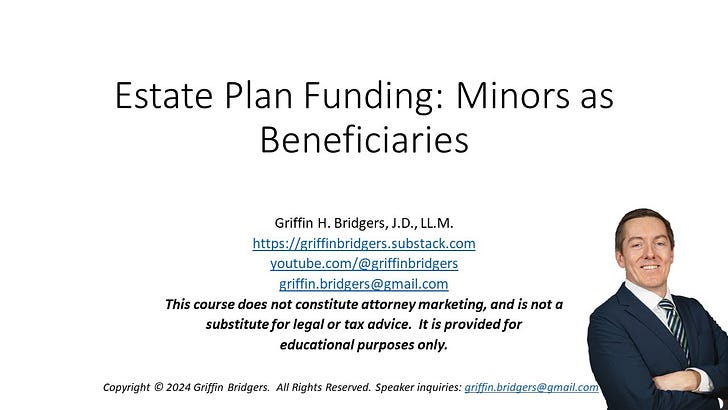A "Better" Guide to Estate Plan Funding, Part 3: Minors as Beneficiaries
Should minors be directly designated as primary or contingent beneficiaries of assets?
This is Part 3 of the series on funding the estate plan. For the first part of this series and a series index, click here.
Table of Contents
Intro
Previously, we discussed how estate claims can apply to both probate and nonprobate assets - along with the role the executor plays. Chief among the concerns discussed was the loss of the exemption from creditor claims of certain assets if the estate is the designated beneficiary, namely life insurance, qualified plans, and IRAs. In the worst case, even with sound planning to avoid probate, a failure to plan for payment of (often unpredictable) estate claims can result in the need for probate. (And, as we will later discuss, administration of a revocable trust is often not as streamlined as one might think.)
These concerns matter when we consider the next point - whether to designate minors as direct beneficiaries of assets such as life insurance, qualified plans, and IRAs. The outcomes can be less than ideal. In this video and article, I discuss some of the issues, risks, and workarounds.
Video
Keep reading with a 7-day free trial
Subscribe to State of Estates to keep reading this post and get 7 days of free access to the full post archives.




